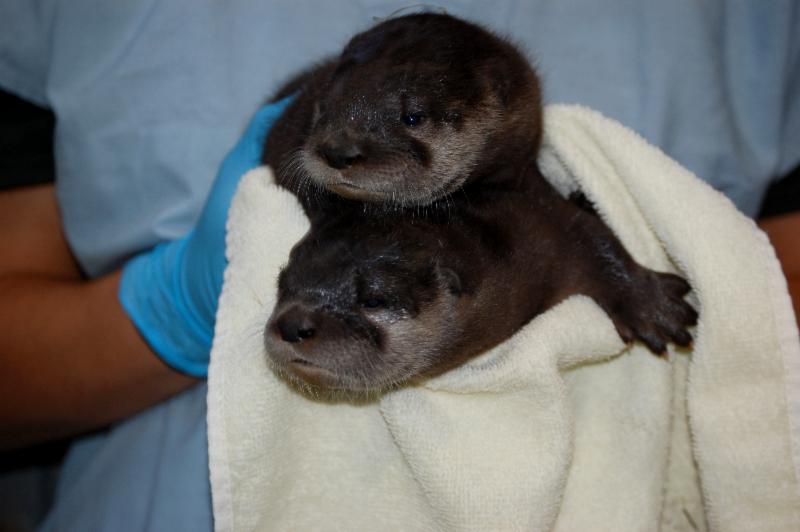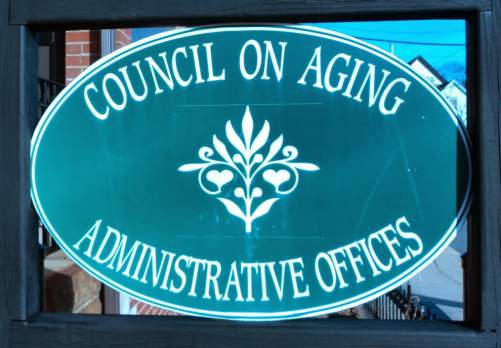
Photo taken by Ashley Graham.
The Buttonwood Park Zoo is proud to announce the birth of two North American river otter pups born to first time mother, Dani, on March 19, 2014. Dani, 3 years old, arrived at the Buttonwood Park Zoo in April of 2013 from the Saint Louis Zoo and has since lived with the Zoo’s two 4 year old male river otters, Duncan and Donut. Based on behavioral observations by the animal care staff, it has been determined that Duncan is the father of the new pups. The birth of these otter pups are result of a breeding recommendation of the Association of Zoo and Aquariums (AZA) North American River Otter Species Survival Plan (SSP). The goal of the SSP is to cooperatively manage otter populations within AZA accredited zoos to ensure the sustainability of a healthy and genetically diverse population.
The Zoo’s veterinary and animal care staff has been monitoring the growth of the otter pups since birth. Shortly after birth, the two pups weighed about a quarter of a pound each and have steadily grown to their current weight of just over four pounds. Otter pups are born almost helpless and require significant care by their mother to survive. Although this is the first litter delivered by mother Dani, she has proven to be a caring mother and has done an excellent job raising the pups. As is normal for the species, the pups did not open their eyes until four weeks after birth.
When discussing this birth, Director of the Zoo, Keith Lovett, stated that “This is an exciting birth for the Zoo! River otters are one of zoo guests’ favorite animals and this birth will allow the community to watch these pups grow to adulthood throughout the year while also learning conservation information about this local species.”
North American river otters can be found throughout the United States and Canada in freshwater ponds, lakes, and marshland habitats. The otters’ diet consist mainly of aquatic organisms, such as fish, turtles, crabs, and other aquatic invertebrates. By the early 1900s, river otters had declined throughout large portions of their historic range in North America due to water pollution, habitat loss, and unregulated trapping. Reintroduction projects and conservation initiatives have allowed river otter populations to re-establish in their native habitats.
Dani and the pups are currently residing in an off-exhibit area of the Zoo as they continue to develop and learn how to swim. The pups are expected to be introduced into the Zoo’s otter habitat by the middle of June. While the pups are being raised behind the scenes, the Zoo’s male otters Duncan and Donut can be seen daily in the otter habitat. The Zoo will provide regular updates on the progress of the pups through its website and other social media activities. The Zoo plans to reveal the gender and conduct a community naming contest for the pups in the next few weeks.
Please direct any questions or requests for more information to Larissa Correia at (508) 991-4556 x 18 or email LCorreia@bpzoo.org.
 New Bedford Guide Your Guide to New Bedford and South Coast, MA
New Bedford Guide Your Guide to New Bedford and South Coast, MA









